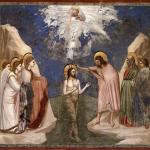 Hans Urs von Balthasar famously taught that we should hope that everyone will be saved. As I have explained in my book, The Eschatological Judgment of Christ, Balthasar’s hope was only that, a hope, not a certainty that all would be saved. He was hopeful that God’s desired end, the salvation of all, could happen, but he stood against those who thought they knew this would happen: he was not a universalist. Likewise, contrary to the way some might think of such hope, Balthasar did not deny the church’s teachings on hell; even if all were saved, hell had a place in Christian theology because Christ’s descent into the realm of the dead was a descent into hell itself. Christ came to judge sin, and he will judge all sin and throw all that is held onto sin into the abyss. Those who do not accept his mercy will be tied with the sin, while those who abandon it and accept Christ’s restorative grace will be purified by Christ and then saved. The judgment of sin has an important role in Balthasar’s theology.
Hans Urs von Balthasar famously taught that we should hope that everyone will be saved. As I have explained in my book, The Eschatological Judgment of Christ, Balthasar’s hope was only that, a hope, not a certainty that all would be saved. He was hopeful that God’s desired end, the salvation of all, could happen, but he stood against those who thought they knew this would happen: he was not a universalist. Likewise, contrary to the way some might think of such hope, Balthasar did not deny the church’s teachings on hell; even if all were saved, hell had a place in Christian theology because Christ’s descent into the realm of the dead was a descent into hell itself. Christ came to judge sin, and he will judge all sin and throw all that is held onto sin into the abyss. Those who do not accept his mercy will be tied with the sin, while those who abandon it and accept Christ’s restorative grace will be purified by Christ and then saved. The judgment of sin has an important role in Balthasar’s theology.
While many know that Balthasar was not a universalist, many assume, based upon common knowledge, Origen was a universalist, indeed, the first great universalist in Christian history. While many of his writings are lost to us, and several only exist in questionable translations, what we have of his works does show us he did indeed talk about universal salvation, however, careful reading of his texts can show us that it is likely he did so in a speculative form; it is certainly the position which he likely favored as to what would happen, but, when we read his commentary on the book of Romans, his position is more ambiguous than many presume it to be. Not only does Origen take the warnings of Paul seriously, he also points out Paul talks about the salvation of many, not all, to encourage otherwise lazy readers to follow Christ’s teachings lest they suffer the consequences of their sins. Thus, talking about Romans 5:15-16,[1] Origen explained:
For this reason he restrains his words and does not put down “all men” as is usual in other place, but “many,” who have been made sinners through the transgression of the one. Similarly he does not assert that the gift in the grace of God through the one man Jesus Christ abounds to “all” but to “very many,” in order to keep the more negligent of his hearers in check with fear and to make them apprehensive, without closing the mysteries of the divine goodness for those who are more perfect. [2]
Paul wrote as a pastor to Christian readers. They knew that salvation was being offered by Christ, and that it was to be obtained by joining their lives with Christ. However, those who presume they are saved can easily become negligent, and so fail to follow Christ’s teachings. Therefore, Paul warned them that it is possible Jesus will not save everyone, but merely many, and so in order to be saved one must pursue a holy life of perfection. The restoration of humanity is accomplished by Christ, but the restorative grace might not be received by all. This is not to say Origen thought that anyonr would be condemned and be damned forever. He certainly hinted, even in his commentary on the Romans, that though some might be judged and condemned by Christ, they could be purified by such judgment and in some distant future, beyond our site and vision, they might also come to such perfection and be saved:
Paul is thus acting as a wise steward of the word. And when he comes to passages in which he has to speak about God’s goodness, he expresses these things in a somewhat concealed and obscure way for the sake of certain lazy people lest, perchance, as we have said, “they despise the riches of his goodness and patience and forbearance and store up for themselves wrath on the day of wrath,” into which all people who have stored up deeds of this kind for themselves must necessarily face, even though you have seen what may happen after these things.[3]
It is possible that Rufinus influenced the translation here, and worked to suggest Origen’s theory is merely a theory with his use of the word “may,” however, because the context lies with the condemnation of sin, which Origen accepts, and the need to warn people of that condemnation by being wise stewards in the way one teaches others about the Christian faith, it seems likely that this was a part of the original text and not something Rufinus added to it. The point for Origen is that there is a limit to God’s patience with our sin, and eventually, we will face the consequences of our sin, recognized by us in the judgment of God. That judgment, like all things done by God, is just and good, and serves for the better good. This is why he can see it as being purificatory and help bring someone to salvation, though he does not turn such salvation into a necessity. What is important is that God is merciful and kind, but if we are negligent, and do not turn towards what is good and holy, eventually our luck, as it were, will run out: “So then, God bears with everyone patiently and awaits each one’s repentance; but this should not render us negligent or make us slow to conversion, since there is a definite measure to his patience and forbearance.”[4]
Christians must not think, because they have found the true faith, they will not face the dread tribunal of Christ. All will face it, especially those who seek after and follow God, for they will face it first:
Let no one think then that he can escape God’s judgment. As the prophet says, “Where shall I go from your Spirit and where shall I flee from your presence?” And because these things are being spoken especially to those who are presiding over the judgments of the peoples, for that reason it says elsewhere, “Judgment shall begin from the house of God.” The Lord says the same thing in another passage, “Among those who draw near me I will show myself holy.” This was accomplished in the case of Nadab and Abihu when they offered strange fire, that is, unholy fire, on the divine altars. Therefore judgment begins with the sons first; for God scourges all whom he receives among the number of his sons. [5]
That all will come to judgment, and some will come out of it saved, indicates that there is the possibility of moving from God’s wrath, due to one’s sins, to being one among the saved. Origen, of course, speculated that this would happen for everyone, though as can be seen when he engages Scripture instead of pure theory, he moderates his statements to make sure they are received as speculations instead of assurances. Why he does this could be purely pastoral, concerned that all will face the consequences of their sins, even if they will be saved. He knew it would be better for anyone in the time of judgment the smaller number of sins they have on their conscience, because then there would be less purification necessary. And so, the reason could simply be pastoral, where he thought it better that those who were far from holy to believe they needed to be concerned about their salvation so that they would be led away from sin. But it could also be that he considered that his speculation, however much he believed it would be how things turned out, could only be verified by knowledge which he did not possess, and so he could not assert with an absolute certainty what seemed to him to be the best and most reasonable end for creation.
Origen, in his commentary on the Romans, one of the last works he wrote, therefore tempers his normative universalistic suggestions, explaining how Paul himself was careful with his eschatological presentation lest his readers became negligent in the faith. He believed, likewise, that all will face the judgment seat of God. The outcome of that judgment is not something Origen asserted. For this reason, Balthasar comes very close to Origen, at least as Origen presents his eschatology in his commentary on the book of Romans, but not for the reason many assume: it is not because their writings proclaimed that all will be saved, but rather, because they presented the hope for such universal salvation, with an acceptance that even if all are saved, all will have to be saved in and through the judgment of God and not from it.
[IMG=Photograph of The Eschatological Judgment of Christ by Henry Karlson]
[1] “But the free gift is not like the trespass. For if many died through one man’s trespass, much more have the grace of God and the free gift in the grace of that one man Jesus Christ abounded for many. And the free gift is not like the effect of that one man’s sin. For the judgment following one trespass brought condemnation, but the free gift following many trespasses brings justification” (Rom. 5:15-16 RSV).
[2] Origen, Commentary on the Book of Romans Books I-5. Trans. Thomas P. Scheck (Washington, DC: CUA Press, 2001), 331.
[3] Origen, Commentary on the Book of Romans Books I-5, 307.
[4] Origen, Commentary on the Book of Romans Books I-5, 106.
[5] Origen, Commentary on the Book of Romans Books I-5, 104-5.
Stay in touch! Like A Little Bit of Nothing on Facebook












